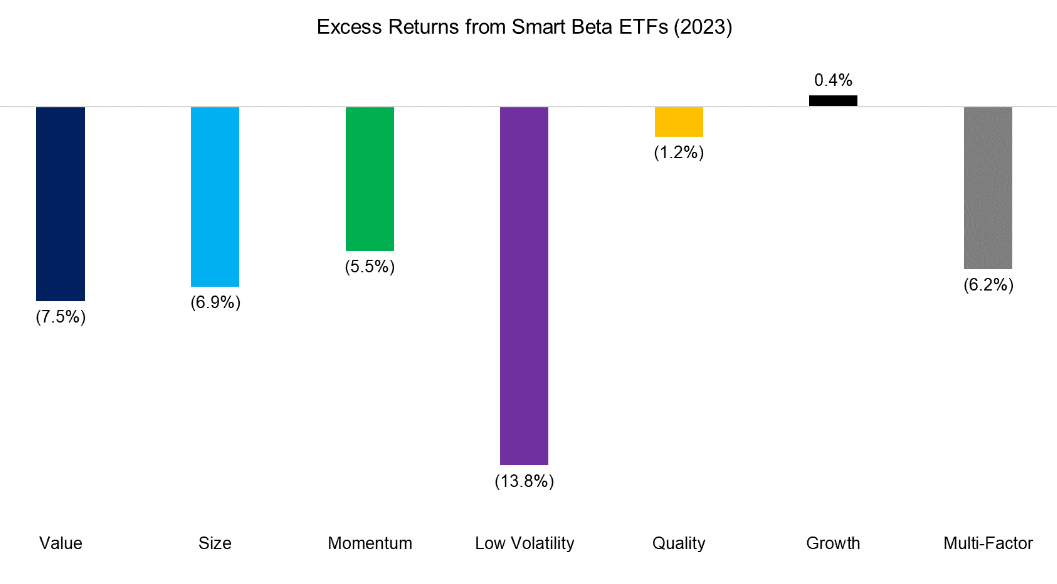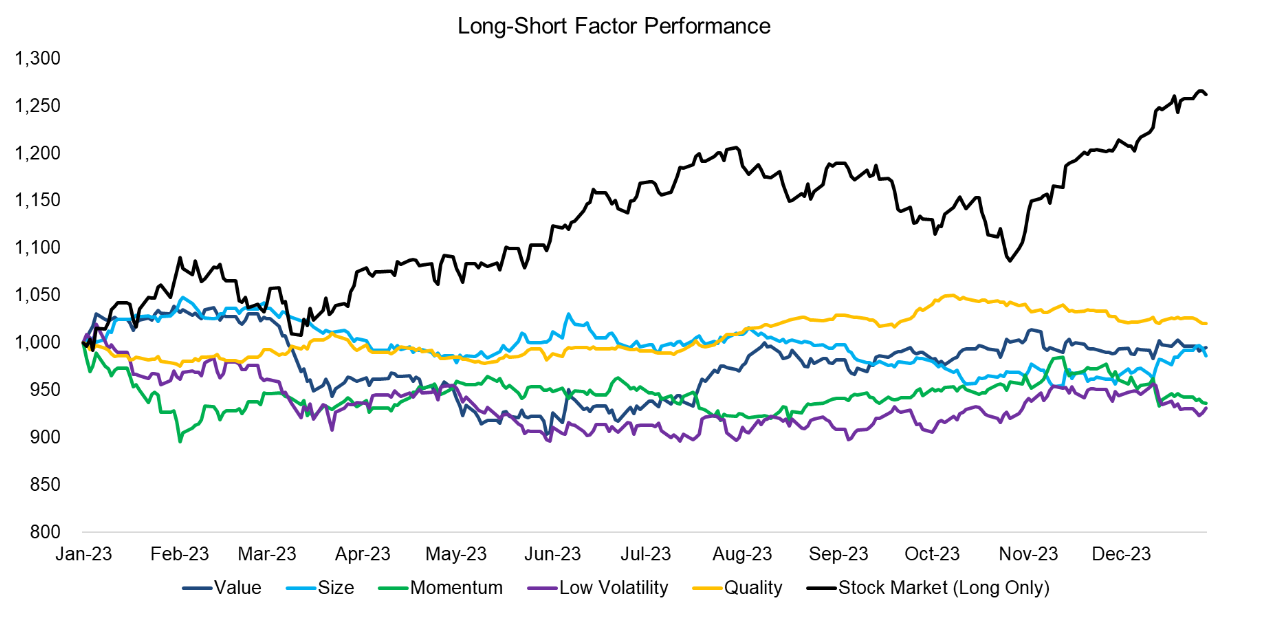Factor ETFs almost unanimously underperformed global benchmarks in 2023 after enjoying their best returns in over a decade a year earlier.
According to data from Finominal, growth factor ETFs – favouring tech names – enjoyed modest excess returns of 0.4% in 2023, whereas low volatility ETFs led the six factors trailing their benchmarks with 13.8% underperformance.
Chart 1: Excess returns from smart beta ETFs in 2023

Source: Finominal
This trend saw the SPDR S&P 500 Low Volatility UCITS ETF (LOVW) return -1.3% in 2023, according to data from Bloomberg Intelligence, versus 25.7% and 22.2% for the S&P 500 and MSCI ACWI, respectively.
Nicolas Rabener, founder and CEO of Finominal, said “the performance of factors was unexciting and poor in 2023” as “factor volatility was low and returns flattish”.
Rabener previously noted investors may be better-served investing in beta neutral, equal-weight long-short factor strategies rather than smart beta ETFs, given the latter may not be as useful a tool for diversification given their tendency to be market cap-weighted.
However, in a recent Finominal report, Rabener said while the magnitude of returns varied between the two types of strategy, their direction of travel was “approximately the same”.
Chart 2: Long-short factor performance in 2023

Source: Finominal
Other notable trends include the high correlation between low volatility and cheap stocks, a dynamic “reminiscent of the tech bubble in 2000”.
“Once the tech bubble imploded, these stocks outperformed significantly in the years thereafter,” Rabener said.
Overall, he concluded the "significant factor rotation” between years highlights the benefits of remaining diversified.
Similar and broader trends also played out in US-listed ETFs. Athanasios Psarofagis, ETF analyst at Bloomberg Intelligence, noted just 28% of ‘active-like’ strategies – factors, actively managed, thematics and ESG – beat the S&P 500 in 2023.
This number was down significantly from 65% in 2022.
Looking ahead, Stephanie Butcher, co-head of investments at Invesco, argued while company fundamentals will become more important for performance, factors may be “less dominant”.
“The previous era made asset allocation relatively simple – US, tech, growth factors,” Butcher said.
“From here, we expect factors to be less dominant and stock-picking opportunities more diverse. It is a challenging backdrop, but an exciting one for active managers.”





